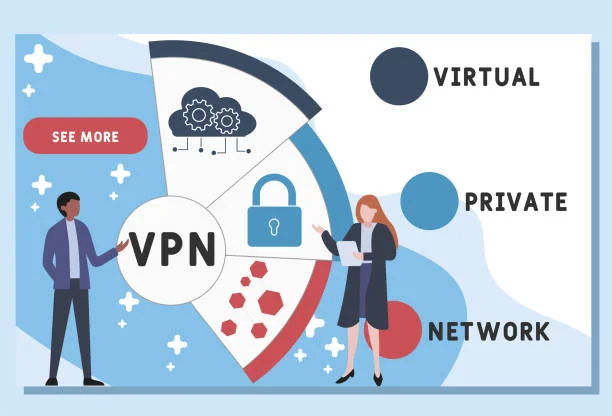In today’s online world, online privacy and security are becoming a greater concern for internet users everywhere. With the internet becoming a greater threat, and data breaches in the news nearly every day, many internet users are utilizing Virtual Private Networks (VPNs) to make sure they are as digitally anonymous as possible. While premium VPN services offer more comprehensive ways to protect yourself, many users also want to learn more about free VPNs, and if they provide enough security and privacy without charging.
Understanding VPN Technology
A Virtual Private Network creates a secure, encrypted tunnel between your device, and the internet. With this technology, you can mask your IP address, encrypt your data, and route your internet traffic to a remote server so it looks like you are browsing from somewhere else. This helps to protect your privacy, secure your data when using public Wi-Fi, and can help to avoid geographic restrictions on content.
The Appeal of Free VPN Services
The main allure of free VPN is simple – they don’t cost anything to sign up and no monthly subscriptions. For price-conscious consumers, students, or anyone who only needs a VPN service infrequently, free might seem like a reasonable alternative. Free VPN services usually have minimal features, a low or moderate level of encryption, limited access to servers in multiple countries, and the basic level of privacy that VPN technology provides.
Many of users find the free VPN services useful for the following purposes:
Protecting the connection on public Wi-Fi networks in cafes, airports or hotels
Accessing geo-targeted content when traveling abroad
Providing an additional layer of privacy while browsing online
Testing VPN service functionality before paying for a monthly subscription
Occasional usage when there are privacy issues
Related insight: This article dives even deeper into the topic.
Common Limitations of Free VPN Services
While free VPN services can provide basic protection, they often come with significant limitations that users should understand before relying on them for comprehensive online security.
Data and Bandwidth Restrictions
Many free VPN providers set limitations on data transfer. Users often only have a set amount of data (usually capped between 500MB to 10GB per month) they can access and is generally insufficient for users with streaming video, downloading or awfully heavy internet usage. Often too, many of these free services throttle the connection speeds after reaching a certain threshold of use, so even if you still have some data left, your browsing and streaming experience will still be slower.
Limited Server Options
Free VPN providers generally have less server locations than paid offerings. With limited server locations to choose from, if a free VPN provider has a heavy usership, you will likely connect to a server that is congested. Fewer server choices will also mean less flexibility in picking the best location to access geo-blocked content and the best available connection speeds.
Advertising and Revenue Models
As free VPN providers have to earn money in some capacity, ineffably, many depend on advertising. Users may face pop-up ads, banner ads, or simply being sent to a promotional site. While an advertising model allows a service to be free, it can be a bit less of a seamless experience for the user and create potential exposure to unwanted marketing materials.
Security Considerations for Free VPN Users
It is important to analyze security when researching free VPNs. Users need to consider security and features; providers do not all maintain the same level of security. Users should evaluate providers before submitting any sensitive information.
Encryption Standards
Credible free VPN services will offer encryption protocols, such as AES-256 encryption, which is considered military-grade security. Consumers should check to see that their picked service implements strong encryption protocols and secure tunneling protocols such as IKEv2 or OpenVPN.
Logging Policies
Users concerned about their privacy should take note of what logging policies a VPN provider has in place. The best VPN providers have no logging policies at all, so they won’t record or store information about your activities, connection times, or surfing habits. A free service may log some information for legitimate business reasons, but always check the privacy policy first.
Company Transparency
Trustworthy free VPN providers should be open and clear about their business model, data handling procedures, and security protocols. Users should investigate the company behind the service, including where they are domiciled, ownership structure (is it a single owner or a corporation), and their history in the privacy space.
Making the Most of Free VPN Services
To get the advantages of free VPN services while minimizing the disadvantages, users can do several things:
Choose Reputable Providers
Research free VPN providers prior to installation. Read reviews from actual users, to see how they rate the service; review the privacy policy and check how transparent the privacy policy is, read the terms of use and see clear information on how security is ensured. Avoid providers that have very questionable reputations or providers that appear too good to be true.
Understand Usage Limitations
If you’re realistic about your online usage, you can choose a free VPNs that suits your needs. However, if you’re a heavy user, you could burn through data limits and need to consider some paid options.
Monitor Your Privacy Settings
Make it a habit to check your VPNs settings regularly and to activate kill switches and DNS leak protection when they are available. These features are essential in maintaining your privacy if your VPN connection fails temporarily.
Keep Software Updated
Always use the latest version of your VPN software to ensure you have the most recent security patches and feature improvements.
When to Consider Upgrading
While free VPN services can provide basic protection, certain situations may warrant upgrading to a premium service:
- If you frequently work with sensitive business data
- When you need consistent high-speed connections for streaming or gaming
- If you require access to servers in specific countries
- When you need 24/7 customer support
- If you want advanced features like split tunneling or multi-device support
The Bottom Line
Free VPN services can offer valuable initial exposure to those users wanting to learn about or have minimal privacy demands for VPN technology. They can provide basic encryption, a way to protect public Wi-Fi connections, and a taste of what VPN protection provides. But it is very important that users approach free VPN services with realistic expectations and an understanding of it’s limits.
The best way to successfully use free VPN services is to choose trustworthy providers, understand the limitations they offer, and be aware of your privacy and security needs. Even though free VPNs services do not provide the same all-around protection that paid services offer, they may give you some privacy benefit if the circumstances are right.
If users are consistently hitting data limits and want more robust protection, it may be worth saving some money and opting for a paid service. At the very least, any VPNsw is better than no VPNs in our increasingly open and connected digital universe.
Want more insights like this? Head over to Management Works Media and start exploring.






